add value to your life, A Beginner’s Guide to Minimalist Lifestyle: Simplicity for a Better Life
A minimalist lifestyle is about keeping your life simple and easy. It’s like having things that make you happy and are not too hard to manage. It means only keeping what’s really important to you and getting rid of all the extra things you don’t really need.
Consider your life as a bag. As you add additional items to it, it becomes heavier and more difficult to carry. Practicing minimalism is like taking the unnecessary items out of your bag to make it lighter and your journey through life simpler.
People who adopt minimalism usually find that they have more time for their favorite activities, feel less stressed, and have more physical and mental space in their homes and lives as a result. It’s about having the correct quantity of things, which makes life feel easier and more enjoyable rather than having nearly nothing.
In this article, we’ll explore the in and out of minimalism and how it can make your life better and bring you joy.
Definition of Minimalism
Minimalist Lifestyle is a lifestyle philosophy centered around the idea of living with less. It’s about intentionally simplifying your life by reducing material possessions, distractions, and excesses. At its core, minimalism is a mindful approach to living that focuses on what truly matters, emphasizing quality over quantity.
Growing Popularity of Minimalism as a Lifestyle Choice
Minimalist Lifestyle has been steadily gaining traction in recent years, and for good reason. More and more people are drawn to the benefits it offers in an increasingly hectic world. The appeal of minimalism lies in its ability to alleviate stress, enhance mental clarity, and foster a deeper appreciation for life’s essentials.
It’s not just about having fewer things; it’s about creating space for what truly matters—time, experiences, and personal growth.
The primary objective of this article is to delve into the lesser-explored facets of minimalist living. While minimalism is often associated with decluttering and simplicity, it extends far beyond that. We’ll uncover the unique elements that make this lifestyle choice so captivating.
From minimalist budgeting strategies and tiny living to the profound impact on mental well-being, we’ll unravel the hidden gems that minimalism offers for those seeking a more meaningful, intentional life. So, let’s embark on this minimalist journey together and discover how it can simplify and enrich your life in ways you might never have imagined.
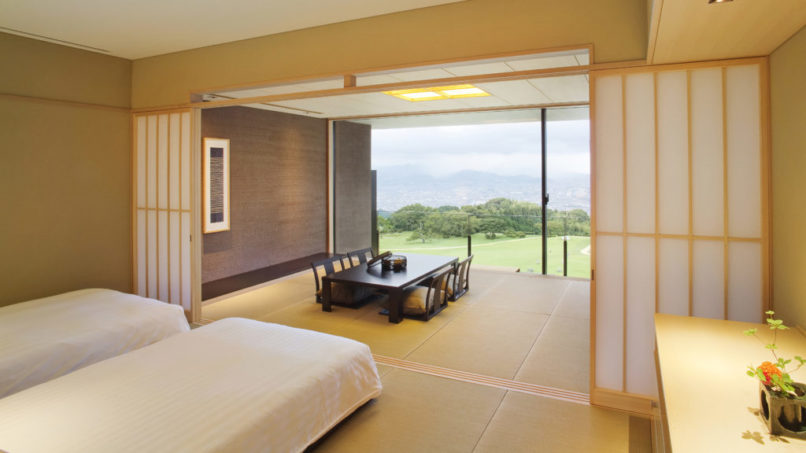
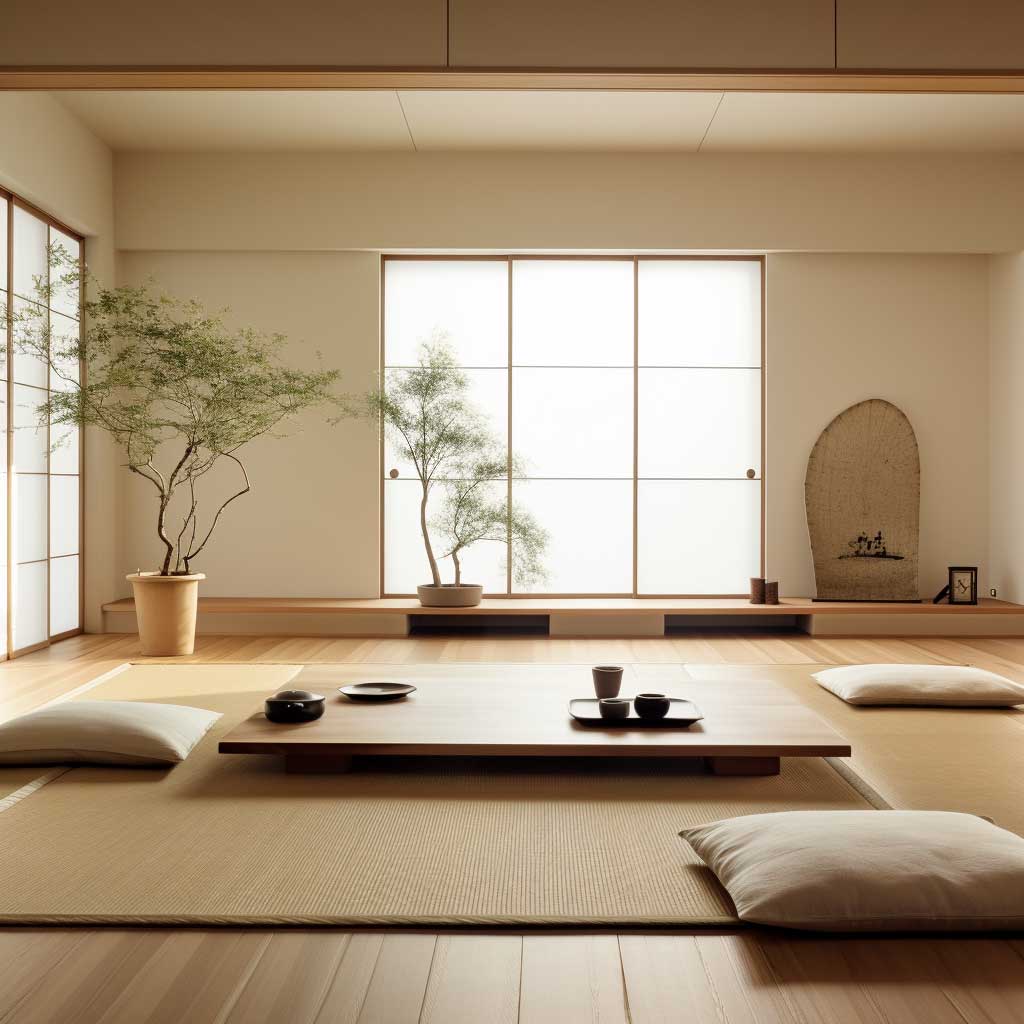
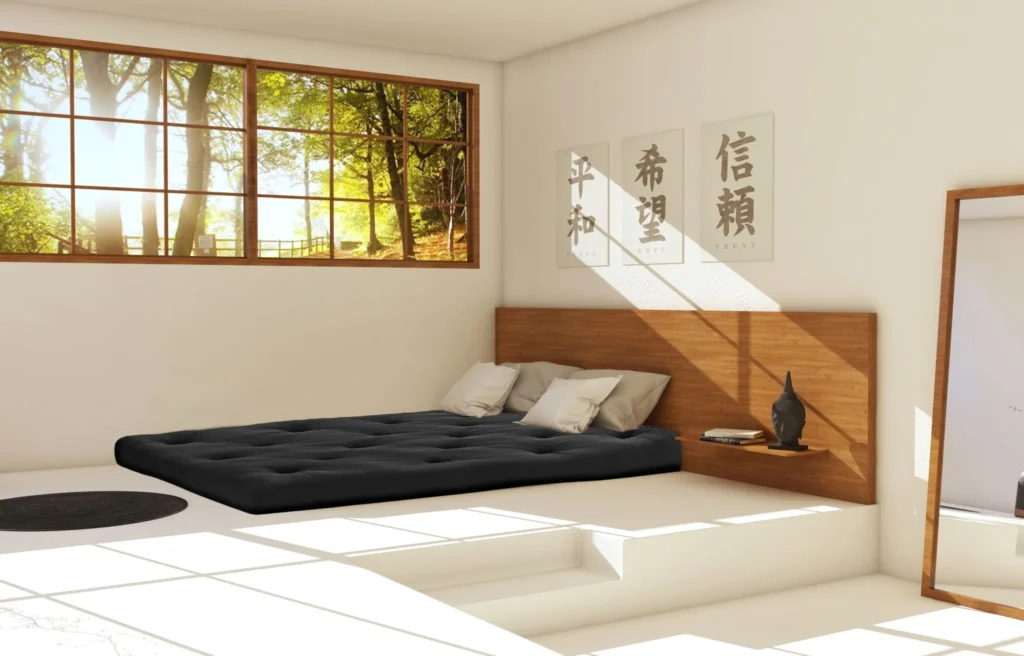
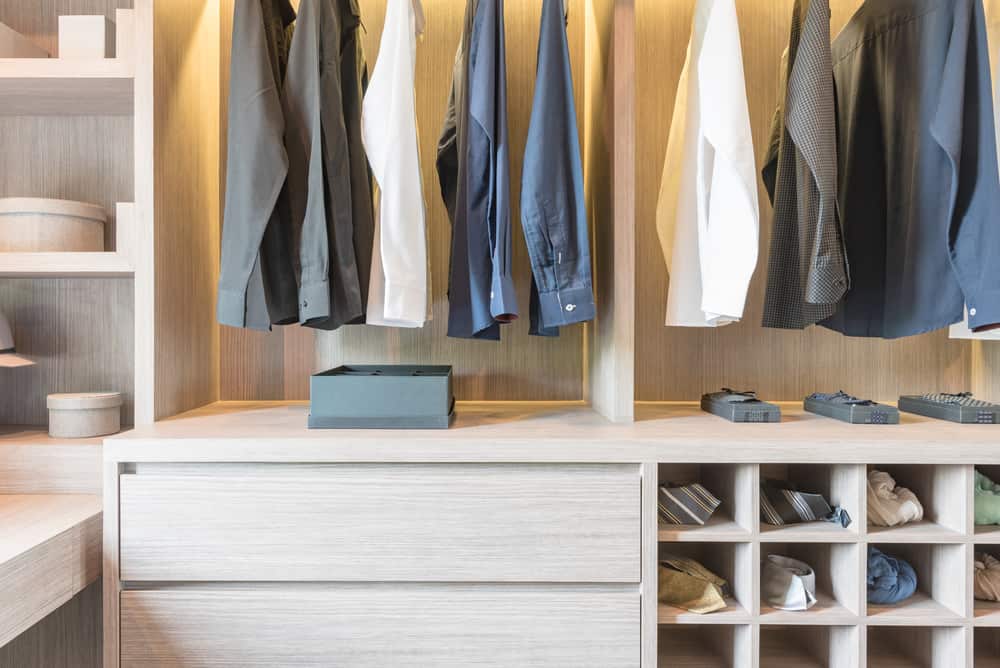
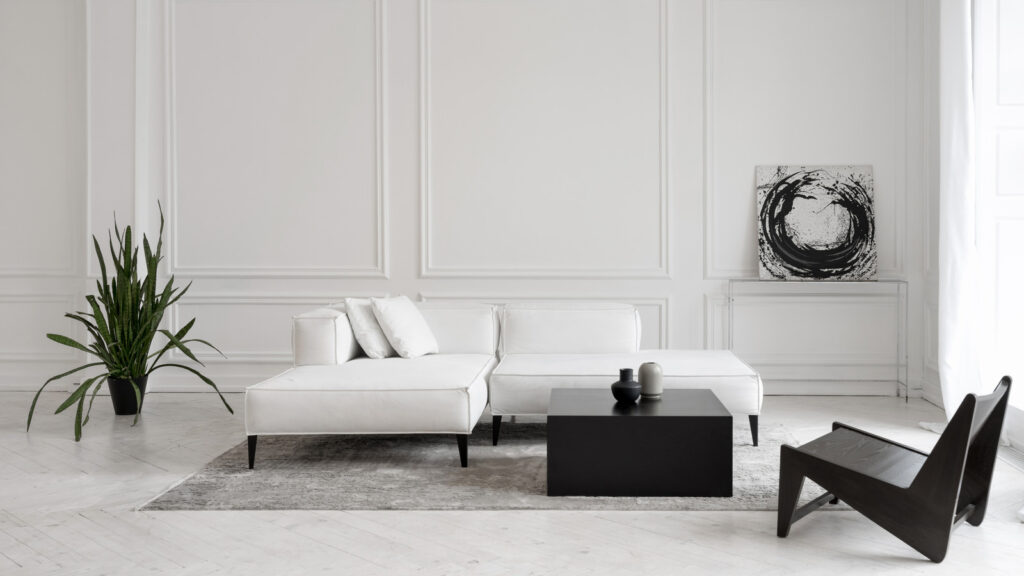
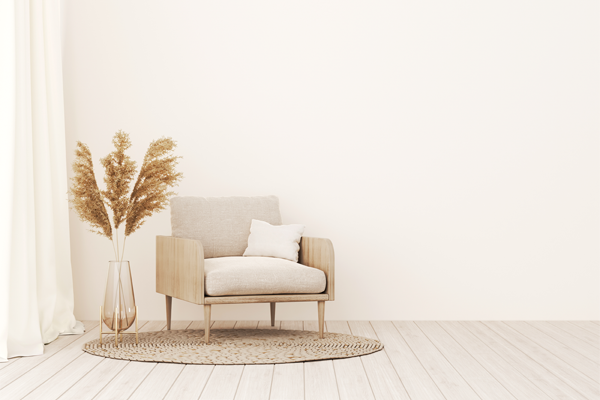
bring you joy: Embracing Minimalist Lifestyle in Everyday Life
The Core Principles of Minimalist
Making life simpler and more meaningful is the main goal of minimalism. Let’s examine the fundamental ideas that characterize this way of living and how they can improve your quality of life.
A. Simplifying Possessions
1. Owning Only What Adds Value
Minimalism teaches us to keep only the things that truly matter to us. Imagine your favorite toys or books – those are the things that bring you joy. Minimalists apply this idea to everything they own.
They let go of items that no longer add happiness or value to their lives. This doesn’t mean you have to get rid of everything, just the things that don’t make you smile.
2. Decluttering Techniques
Decluttering is like tidying up your space, but it goes beyond that. Minimalists have clever tricks to help them let go of things they don’t need. One popular method is the “30-day challenge.”
Each day, you get rid of one item for a month. By the end, you’ll have cleared out 30 things you didn’t need!
B. Mindful Consumption
1. Importance of Intentional Purchasing
Have you ever purchased something and later realized that you didn’t actually require it? Minimalists avoid that by thinking before they buy. They ask themselves, “Do I really need this, or am I just buying it because it’s on sale?” By being intentional with their purchases, minimalists save money and avoid clutter.
2. Reducing Waste and Environmental Impact
Minimalism and eco-friendliness go hand in hand. When you buy less, you waste less. This helps the environment because it reduces the amount of stuff that ends up in landfills. Minimalists often choose products that are long-lasting and eco-friendly to lessen their impact on the planet.
C. Focus on Experiences Over Things
1. Travel, Adventures, and Creating Memories
Minimalists value experiences over stuff. They’d rather spend their money on travel, adventures, and creating beautiful memories. Instead of buying a new gadget, they might plan a weekend getaway with their loved ones. These experiences stay with them forever, while gadgets lose their shine.
Make your home look nice by using plants instead of heavy and expensive decorations. These experiences stay with them forever, while gadgets lose their shine. Make your home look nice by using plants instead of heavy and expensive decorations
2. Prioritizing Relationships and Personal Growth
Another important aspect of Minimalist Lifestyle is nurturing relationships and personal growth. Minimalists understand that time spent with loved ones is precious. They prioritize building and maintaining strong bonds with family and friends. They also invest in themselves by learning new skills and growing as individuals.
In a nutshell, minimalism is about simplifying your life, making thoughtful choices, and focusing on what truly brings you happiness. It’s a journey that anyone can start, step by step, to create a more fulfilling and purposeful life.

Minimalist Lifestyle The Art of Living Light: Decluttering, Mindful Consumption, and Embracing Experiences
In today’s bustling world, where it’s easy to accumulate clutter and get caught up in consumerism, there’s a refreshing lifestyle called minimalism that emphasizes simplicity and meaning. We’ll explore three important aspects of minimalism: decluttering techniques, mindful consumption, and the value of experiences over material possessions.
Decluttering Techniques
Decluttering means tidying up and letting go of things you no longer need. Here are some simple techniques to help you declutter:
- The 30-Day Challenge: This is a fun way to start decluttering. Each day, you choose one item to let go of for a month. By the end, you’ll have cleared out 30 items you no longer need. It’s like a game that makes decluttering less overwhelming.
- The One In, One Out Rule: Whenever you buy something new, commit to getting rid of something old. For example, if you buy a new shirt, donate or sell an old one.
- This helps you control and manage your belongings.
Mindful Consumption
Mindful consumption is about being thoughtful and intentional with your purchases. Here’s why it’s essential:
- Importance of Intentional Purchasing: Before buying something, ask yourself if you truly need it. Is it something that will add value to your life, or is it just a momentary impulse? By being intentional with your purchases, you’ll save money and avoid accumulating unnecessary stuff.
- Reducing Waste and Environmental Impact: Minimalism aligns with eco-friendly living. When you buy less, you waste less. Minimalists often choose products that are durable and eco-friendly to reduce their impact on the environment. This helps lessen the amount of waste that ends up in landfills.
Focus on Experiences Over Things
Minimalists believe that experiences hold more value than material possessions. Here’s why:
- Travel, Adventures, and Creating Memories: Minimalists love to travel and embark on adventures. They invest their time and resources in experiences that create beautiful memories. Instead of spending money on new gadgets, they might plan a getaway with loved ones. These experiences become cherished stories to share.
- Prioritizing Relationships and Personal Growth: Minimalism encourages nurturing relationships and personal growth. Minimalists understand that time spent with loved ones is precious. They prioritize building strong bonds with family and friends. Additionally, they invest in personal development by learning new skills and evolving as individuals.
Minimalist Lifestyle isn’t just about getting rid of stuff; it’s a lifestyle that promotes intentional living, reduces waste, and focuses on what truly matters—experiences, relationships, and personal growth.
By embracing decluttering techniques, mindful consumption, and the value of experiences, you can simplify your life and find greater fulfillment in the things that truly count.

Unlocking Freedom and Simplicity: The Unique Charm of Minimalism
In a world where more seems to be the norm, minimalism shines as a lifestyle that offers extraordinary benefits. In this article, we’ll explore the distinct appeal of Minimalist Lifestyle, focusing on three intriguing aspects: financial freedom and early retirement, tiny living and alternative housing, and minimalist fashion and wardrobe choices.
A. Financial Freedom and Early Retirement
1. Minimalist Budgeting Strategies
Minimalism isn’t just about decluttering your space; it’s about decluttering your finances too. Minimalist budgeting strategies can help you achieve financial freedom faster. Here’s how:
- Savings Priority: Minimalists prioritize saving money over spending it. They often follow the 50/30/20 rule, where 50% of their income goes to needs, 30% to wants, and 20% to savings. This disciplined approach can lead to financial stability and even early retirement.
- Frugal Living: Minimalists are conscious of their spending habits. They cut unnecessary expenses and focus on what truly matters. This means fewer impulse purchases and more savings for future goals.
2. Achieving Financial Independence
One of the unique perks of minimalism is its potential to help you achieve financial independence sooner:
- Debt Reduction: Minimalists prioritize paying off debts, which reduces financial stress and brings them closer to financial freedom.
- Investing Wisely: With more savings, minimalists often invest wisely in assets that can grow over time, such as stocks or real estate. This allows them to create passive income streams and achieve financial independence.
B. Tiny Living and Alternative Housing
1. Minimalist Architecture and Design
Minimalist architecture and design are all about simplicity, functionality, and maximizing space. These principles are at the heart of tiny living:
- Efficient Use of Space: Minimalist design focuses on efficient use of space, ensuring every square foot has a purpose. This is especially evident in tiny homes, where creative storage solutions and multi-purpose furniture are common.
- Natural Light and Openness: Minimalist architecture often emphasizes natural light and open spaces, creating a sense of airiness and tranquility in homes.
2. Tiny Homes and Their Benefits
Tiny homes are gaining popularity among minimalists for several reasons:
- Affordability: Tiny homes are typically more affordable than traditional houses, allowing minimalists to live debt-free or with lower housing costs.
- Sustainability: Tiny homes don’t harm the environment as much because they are small and have energy-saving features.
- Freedom: Tiny living often means fewer possessions and responsibilities, offering a sense of freedom and flexibility.
C. Minimalist Fashion and Wardrobe
1. Capsule Wardrobes and Timeless Fashion
Minimalists apply the same principles to their clothing as they do to their possessions:
- Capsule Wardrobes: A capsule wardrobe consists of a small, curated collection of versatile clothing items that can be mixed and matched. It reduces the need for a large, cluttered closet.
- Timeless Fashion: Minimalists opt for timeless, classic pieces that don’t go out of style. This ensures that their wardrobe remains relevant and stylish for years to come.
2. Reducing Decision Fatigue Through Clothing Choices
Minimalists understand that simplifying wardrobe choices can save mental energy:
- Stress Reduction: Having fewer clothing options reduces the stress of deciding what to wear each day, allowing for more mental clarity and focus on important tasks.
- Quality Over Quantity: Minimalists invest in high-quality clothing that lasts longer, reducing the need for frequent shopping trips and promoting sustainability.
Minimalist Lifestyle appeal extends to financial freedom, efficient living spaces, and simplified wardrobes. It offers unique benefits that can lead to a more fulfilling and intentional way of life, emphasizing quality over quantity in all aspects.

The Path to Inner Peace: How Minimalism Enhances Your Mental Well-being
In our fast-paced world, where chaos often reigns, minimalism offers a serene and purposeful way of life. Beyond decluttering our physical space, minimalism has a profound impact on our mental well-being.
A. Reducing Stress and Anxiety
1. Decluttering the Mind Through Minimalism
Minimalism isn’t just about tidying up our homes; it’s about decluttering our minds too. Here’s how it works:
- Letting Go of Mental Baggage: Just as minimalists let go of physical possessions, they also release mental clutter. This means freeing the mind from worries, overthinking, and unnecessary stress.
- Practicing Mindful Awareness: Minimalists often embrace mindfulness, a practice that encourages staying in the present moment. By focusing on the here and now, they reduce anxiety and find peace in simplicity.
2. Cultivating Mindfulness and Presence
Minimalism promotes mindfulness, which is crucial for mental well-being:
- Mindful Living: Minimalists pay full attention to their actions, thoughts, and surroundings. This leads to a deeper connection with life’s moments and a reduction in anxiety about the past or future.
- Less Multitasking: Minimalists avoid overloading themselves with tasks and distractions. Instead, they focus on one thing at a time, reducing mental stress and promoting a sense of calm.
B. Increased Focus and Productivity
1. Eliminating Distractions
Minimalism is a powerful tool for eliminating distractions:
- Digital Detox: Minimalists often reduce their screen time and simplify their digital lives. This reduces the constant bombardment of information and notifications that can lead to stress and decreased productivity.
- Decluttered Workspaces: A clutter-free workspace promotes concentration and creativity. Minimalists keep their workspaces tidy and organized to enhance focus.
2. Enhanced Concentration and Creativity
Minimalism fosters an environment that allows creativity to flourish:
- Clearing Mental Space: Minimalists have fewer worries and distractions, providing more mental space for creativity to bloom.
- Inspiration from Simplicity: Minimalism’s simplicity can be a wellspring of inspiration. Minimalists often find beauty and creativity in the simplest of things.
C. Finding Purpose and Meaning
1. Eliminating Societal Pressures and Comparisons
Minimalism encourages us to live life on our terms, free from external pressures:
- Defying Consumerism: Minimalists resist the urge to constantly acquire more possessions to fit societal standards. This reduces the anxiety caused by materialism.
- Embracing Individuality: Minimalism celebrates individuality and personal values, helping individuals break free from the stress of societal comparisons.
2. Identifying Personal Values and Passions
Minimalism allows us to focus on what truly matters:
- Soul Searching: Minimalists take time to explore their passions and values, helping them discover their purpose in life.
- Simplified Goals: Minimalists set clear, meaningful goals aligned with their values, providing a sense of direction and fulfillment.
Minimalist Lifestyle is a powerful tool for enhancing mental well-being. By reducing stress and anxiety, boosting focus and productivity, and helping individuals find their true purpose and meaning, minimalism offers a path to inner peace and fulfillment in an increasingly complex world.

Embracing Minimalist Lifestyle: Overcoming Challenges with Ease”
Minimalist Lifestyle, with its focus on simplicity and intentionality, can transform lives positively. However, like any lifestyle change, it comes with its own set of challenges.
A. Dealing with Societal Expectations
1. Handling Criticism and Skepticism
Embracing minimalism might invite questions and doubts from those around you. Here’s how to deal with them:
- Stay Confident: Believe in your choice. Understand that minimalism is about what works best for you, not what others think.
- Educate Others: Share the benefits of minimalism when asked. Explain how it has improved your life and focus on the positives.
2. Explaining Minimalist Choices to Friends and Family
Talking to loved ones about your minimalist lifestyle can be challenging, but it’s essential:
- Open Communication: Discuss your reasons for choosing minimalism with empathy and patience. Help them understand why it matters to you.
- Lead by Example: Show how minimalism positively impacts your life. When friends and family see the benefits, they may become more supportive.
B. Managing Sentimental Items
1. Strategies for Preserving Memories Without Clutter
Minimalists often face the dilemma of parting with sentimental possessions. Here’s how to handle it:
- Photographs and Scanning: Digitize sentimental items like old photos, letters, and drawings to preserve memories without the physical clutter.
- Selective Keepsakes: Choose a few cherished items to keep. These should be the ones that truly hold special meaning for you.
2. Digital Alternatives for Keepsakes
In the digital age, there are numerous ways to preserve sentimental items:
- Digital Photo Albums: Create digital photo albums to store memories. You can easily access and share them without physical clutter.
- Scrapbooking Apps: Explore digital scrapbooking apps to create virtual memory books with images, notes, and mementos.
C. Maintaining Balance
1. Avoiding Extreme Asceticism
Minimalism is not about living without comforts; it’s about being intentional with what you have:
- Focus on Value: Ensure that what you keep adds value and joy to your life. It’s okay to own things that enhance your comfort and happiness.
- Moderation: Find a balance that works for you. Minimalism doesn’t require extreme sacrifice; it’s about mindful choices.
2. Adapting Minimalism to Individual Needs and Preferences
Minimalism is a personal journey; there’s no one-size-fits-all approach:
- Tailor-Made Minimalism: Customize minimalism to align with your unique needs, values, and circumstances.
- Experiment: Don’t be afraid to adjust your approach as you go along. Minimalism should enhance your life, not restrict it.
Minimalist Lifestyle offers a transformative way of living, it’s not without its challenges. By handling criticism with confidence, managing sentimental items thoughtfully, and maintaining a balanced approach that suits your individual needs, you can navigate these challenges successfully and make minimalism a fulfilling and sustainable part of your life.

Real Stories of Transformation: Inspiring Minimalist Journeys
Minimalist Lifestyle isn’t just a trend; it’s a transformative lifestyle that’s changing lives around the world.
A. Real-Life Testimonials
1. Personal Journeys to Minimalism
Minimalism often begins as a personal journey towards a more intentional and fulfilling life:
- From Clutter to Clarity: Many minimalists start with cluttered homes and minds. They share their stories of how decluttering and simplifying their physical space led to a sense of mental clarity and peace.
- Breaking Free from Consumerism: Testimonials often highlight the shift from a consumer-driven lifestyle to one where experiences and personal growth take precedence. They share how letting go of materialism enhanced their overall well-being.
2. Transformations in Health, Relationships, and Happiness
Minimalism’s impact extends beyond decluttering:
- Improved Health: Some minimalists share how simplifying their lives led to better physical and mental health. Reduced stress and a focus on self-care become central themes in their stories.
- Stronger Relationships: Minimalists often emphasize the importance of relationships. They discuss how minimalism allowed them to prioritize time with loved ones and build deeper connections.
- Happiness and Contentment: The overarching theme in these testimonials is increased happiness and contentment. Minimalists share how shedding excess and living with intention led to a more fulfilling life.
B. Notable Minimalist Influencers
1. Profiles of Minimalist Leaders in Various Fields
Minimalism has gained momentum with the help of influential figures who’ve adopted and promoted this lifestyle:
- Joshua Fields Millburn and Ryan Nicodemus: Known as “The Minimalists,” they’ve inspired countless individuals with their story of leaving corporate careers to embrace minimalism and share its benefits through books, documentaries, and speaking engagements.
- Marie Kondo: An organizing consultant and author of “The Life-Changing Magic of Tidying Up,” Kondo’s KonMari method has revolutionized decluttering worldwide.
- Leo Babauta: Founder of Zen Habits, Babauta has shared his minimalist approach to life, emphasizing simplicity and mindfulness.
- Courtney Carver: Creator of the “Project 333” wardrobe challenge, Carver has encouraged thousands to embrace minimalist fashion through her blog, “Be More with Less.”
2. Their Impact on the Minimalist Community
These influencers have left an indelible mark on the minimalist community:
- Inspiration: Their stories and teachings have inspired countless individuals to embark on their minimalist journeys.
- Resources: They’ve provided valuable resources, from books to blogs, making it easier for others to understand and adopt minimalism.
- Community Building: Influencers have fostered supportive communities where minimalists can connect, share stories, and learn from one another.
Minimalist Lifestyle is enriched by inspiring real-life testimonials and influential figures who’ve led the way. Their stories of transformation and their impact on the minimalist community continue to motivate people to simplify their lives, prioritize what truly matters, and find greater happiness and fulfillment in the process.
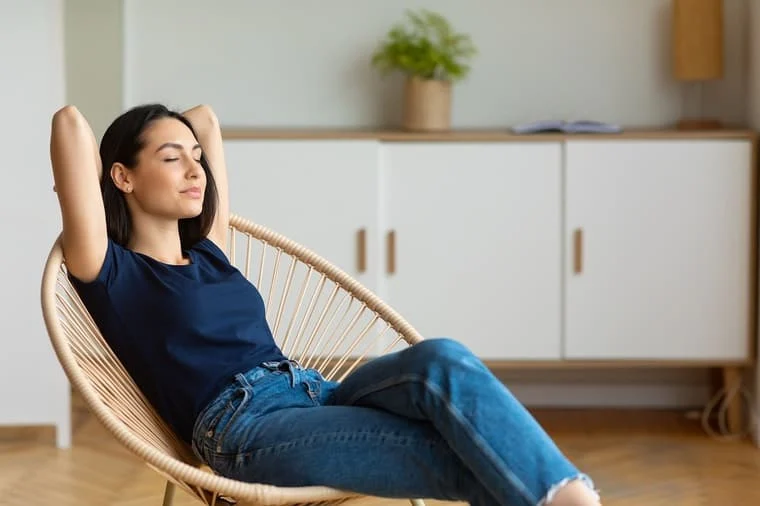
Add value to your life, brings you joy: Practical Tips for Getting Started
Minimalist Lifestyle offers a path to a simpler, more intentional life. Add value to your life, brings you joy
A. Starting Your Minimalist Journey
1. Practical Steps for Decluttering and Simplifying
- Begin Small: Start with one area of your life, such as your closet, kitchen, or workspace. Examine your belongings and think about which ones genuinely make your life better. Keep what you love and need; let go of the rest.
- The 30-Day Challenge: Try the “30-day minimalism challenge” mentioned earlier. Each day, remove one item from your living space. By the end of the month, you’ll have lightened your load considerably.
2. Setting Clear Goals and Intentions
- Define Your Why: Ask yourself why you want to embrace minimalism. Is it to reduce stress, gain financial freedom, or simply lead a more intentional life? Knowing your “why” will keep you motivated.
- Create a Vision: Envision what your minimalist life looks like. Having a clear vision will help you set specific goals and intentions for your journey.
B. Resources and Tools
1. Books, Documentaries, and Websites on Minimalism
- “The Life-Changing Magic of Tidying Up” by Marie Kondo: This book offers practical advice on decluttering and organizing your home.
- “Minimalism: A Documentary About the Important Things”: This documentary explores the lives of minimalists and their reasons for choosing this lifestyle.
- Blogs and Websites: Numerous blogs and websites, like “The Minimalists,” “Zen Habits,” and “Becoming Minimalist,” provide a wealth of information, tips, and personal stories related to minimalism.
2. Minimalist Apps and Digital Tools
- Trello: A digital tool that helps you organize tasks, set goals, and track your progress on your minimalist journey.
- Goodreads: Use this app to find and track books related to minimalism. You can also join reading groups to discuss these books with others.
- Decluttering Apps: Apps like “Decluttr” and “Letgo” can help you sell or donate items you no longer need, making decluttering easier.
C. Joining the Minimalist Community
1. Local and Online Support Networks
- Meetup: Search for local minimalist or decluttering groups on Meetup.com. Meeting people in person can provide invaluable support and motivation.
- Online Forums: Websites like Reddit have active minimalist communities where you can ask questions, share your journey, and learn from others.
2. Finding Like-Minded Individuals
- Social Media: Platforms like Instagram, Twitter and Facebook have dedicated minimalist groups and accounts where you can connect with people who share your interests.
- Attend Workshops and Events: Look for local workshops, seminars, or events related to minimalism. These gatherings provide opportunities to meet like-minded individuals and expand your knowledge.
Your journey toward a Minimalist Lifestyle is both personal and enriching. By following practical steps, exploring valuable resources, and connecting with a supportive community, you can make meaningful progress on your path to a simpler, more intentional life. Remember that minimalism is not about perfection; it’s about progress and the positive changes it brings to your life.

Begin Your Minimalist Journey: Simple Steps, Valuable Tools, and Supportive Communities”
Minimalism, with its promise of simplicity and intentionality, is a lifestyle that can transform your life. If you’re eager to embrace minimalism but don’t know where to start, this will provide you with practical tips to commence your journey, introduce you to valuable resources and tools, and guide you in connecting with a supportive minimalist community.
A. Starting Your Minimalist Journey
1. Practical Steps for Decluttering and Simplifying
- Begin with Small Areas: Start your decluttering process in manageable sections of your life. You can focus on a single room, your wardrobe, or even your digital space. Tackling one area at a time prevents overwhelm.
- The 30-Day Challenge: Consider trying the “30-day minimalism challenge.” Each day, identify one item to remove from your living space. By the end of the month, you’ll have made significant progress in simplifying your surroundings.
2. Setting Clear Goals and Intentions
- Define Your Why: Reflect on why you want to embrace minimalism. Is it to reduce stress, gain financial freedom, or cultivate a more mindful existence? Understanding your motivation will keep you committed to the journey.
- Create a Vision: Imagine your ideal minimalist lifestyle. Visualize how it will look and feel. This vision will serve as a guiding light, helping you set specific goals and intentions.
B. Resources and Tools
1. Books, Documentaries, and Websites on Minimalism
- “The Life-Changing Magic of Tidying Up” by Marie Kondo: This best-selling book offers actionable advice on decluttering and organizing your living spaces.
- “Minimalism: A Documentary About the Important Things”: This documentary explores the lives and philosophies of minimalists, shedding light on their motivations and the benefits they’ve experienced.
- Blogs and Websites: The internet is replete with minimalist blogs and websites such as “The Minimalists,” “Zen Habits,” and “Becoming Minimalist.” These resources provide practical tips, personal stories, and insights into minimalist living.
2. Minimalist Apps and Digital Tools
- Trello: A digital tool that assists you in organizing tasks, setting goals, and monitoring your progress on your minimalist journey.
- Goodreads: This app enables you to discover and track books related to minimalism. You can also join reading groups to engage in discussions with fellow readers.
- Decluttering Apps: Consider using apps like “Decluttr” and “Letgo” to sell or donate items you no longer need, streamlining the decluttering process.
C. Joining the Minimalist Community
1. Local and Online Support Networks
- Meetup: Search for local minimalist or decluttering groups on Meetup.com. Engaging with like-minded individuals face-to-face can provide invaluable support and motivation.
- Online Forums: Websites like Reddit host active minimalist communities where you can seek advice, share your journey, and learn from the experiences of others.
2. Finding Like-Minded Individuals
- Social Media: Platforms like Instagram and Facebook host dedicated minimalist groups and accounts where you can connect with individuals who share your interests and aspirations.
- Attend Workshops and Events: Keep an eye out for local workshops, seminars, or events focused on minimalism. These gatherings offer opportunities to meet kindred spirits and deepen your understanding of the minimalist lifestyle.
Minimalist Lifestyle is a journey filled with discovery and transformation. By taking practical steps, exploring valuable resources and tools, and connecting with a supportive community of fellow minimalists, you can embark on this fulfilling journey towards a simpler, more intentional way of life. Remember, minimalism is about progress, not perfection, and the positive changes it brings to your life are worth the effort.
How do I start a minimalist lifestyle?
Decide how your home can help you live a more minimalist lifestyle. …
Declutter. …
Train yourself to live with less. …
Ask yourself, “do I really need this?” all the time. …
Be a re-user. …
Invest in high-quality items.
More items…
Is it healthy to be a minimalist?
Do minimalists save money?
Give yourself a clear, personal goal (and a timeline) …
Decide how your home can help you live a more minimalist lifestyle. …
Declutter. …
Train yourself to live with less. …
Ask yourself, “do I really need this?” all the time. …
Be a re-user. …
Invest in high-quality items.
More items…
Do minimalists save money?
Are minimalists happier?
What are the disadvantages of minimalism?
You risk over-optimising and over-thinking. …
Minimalists carry the burden of being minimalists. …
Gift-giving and receiving can be an awkward mess. …
Minimalism is often put in a box and portrayed as a particular aesthetic
What are the symptoms of a minimalist person?
You Deplore Mindless Consumerism. …
You’re Naturally Frugal. …
You Don’t O.D. on Possessions. …
You Steer Away from Stress and Conflict. …
Too Much Stuff Makes You Anxious. …
You Like Space. …
You Don’t Fear Change.
